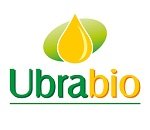World Trade Center Utrecht
Stadsplateau 2, Utrecht
the Netherlands
Organized by the IEA Bioenergy Technological Cooperation Programme, in partnership with the Biofuture Platform, below50, IEA, IRENA and GBEP, the workshop is limited to 100 participants, and free of charge, but registration is required before Friday 3 May 2019 through the provided link.
Thusrday, May 23, 2019, 8h45 – 18h00
World Trade Center Utrecht (next to Utrecht Central Station)
Stadsplateau 2
3521 AZ Utrecht – the Netherlands
Governing Sustainability in Biomass Supply Chains for the Bioeconomy
Introduction
Securing a sustainable supply of biomass is one of the key issues for deploying biobased energy, but also other biobased products. Given the ample debate on the sustainability of bioenergy and biofuels, it can be expected that similar requirements and governance systems will be discussed for other emerging biobased products, and existing bioeconomy commodities such as food & feed, fibers, timber etc.
The IEA Technology Roadmap Delivering Sustainable Bioenergy of 2017 identified a key action to develop and implement internationally recognized sustainability governance systems that cover all bioproducts and which support sustainable best practices and stimulate innovation .
This invitation-only workshop kicks-off this work and presents an overview of what relevant sustainability governance already exists and what more may be needed, and how collaboration of policy and market actors across sectors as well as civil society could support a sustainable bioeconomy.
More specifically, the aim of the workshop will be to discuss:
– What can we learn from experiences with sustainability governance (in agriculture, bioenergy, forestry) for the broader bioeconomy?
– Pragmatic solutions to operationalize sustainability governance (public & private sector, financial institutions).
– What actions are needed to progress towards a sustainable, circular bioeconomy?
– How can we provide confidence and gain trust in a sustainable bioeconomy, including bioenergy?
– How can international collaboration provide a way forward?
Programme
8.30 – 8:45 Registration, with coffee&tea
8:45 Welcome (Kees Kwant, RvO) and introduction to the workshop (Uwe R. Fritsche, IINAS)
9:15 Session 1: Setting the scene and policy experiences (Moderator: Kees Kwant)
. Welcome addresses from NL Ministry for Economy (tbc), and Anders Wijkman (former EP member)
. Biobased systems in sustainability transitions (Goran Berndes, Chalmers Univ.)
. Bioenergy in the IEA fs scenarios for sustainable energy transitions (Paolo Frankl, IEA ] tbc)
. Lessons learnt from the IEA Bioenergy TCP Intertask Project hMeasuring, governing and gaining support for sustainable bioenergy supply chain h (Inge Stupak, Univ. Copenhagen)
. EU view on bioeconomy governance (EC DG RTD/AGRI/ENER ] tbd)
. Beyond Europe:
– OECD perspective (Jim Philp, OECD)
– Bioeconomy governance in developing countries (Jan Borner, ZEF Bonn)
. Voices from the plenary: brief interventions on where we are (moderated)
10:45 Tea/coffee break and informal talks
11:15 Session 2: Collecting the evidence: Views from multi ]lateral partnerships, industry, and civil society: success stories and lessons learned (Moderator: Uwe R. Fritsche)
. The global fora: brief interventions on
Global Bioeconomy Summits and International Bioeconomy Forum (Luisa Marelli, JRC),
Biofuture Platform (Renato D. Godinho, Brazilian Ministry of Foreign Affairs)
Global Bioenergy Partnership (Michela Morese, GBEP Secretariat, FAO)
. Sustainable supply chain governance: brief interventions on experiences from
– Consumer Goods Forum (Ignacio Gavilan)
– Below 50 (Gerard Ostheimer)
– Views and comments from
– industry (EUBA ] tbc)
– civil society:
. Environmental NGO (Jenny Walther ]Thoss, WWF)
. Development NGO (Katie Minderhoud, Solidaridad)
Roundtable with Session 2 speakers: Joint views on sustainability governance of the bioeconomy
12:50 Brief introduction to World Cafe 1 + 2 (by the moderator)
13:00 Lunch break and informal talks
14:00 World Cafe 1: What actions are needed for progressing towards a sustainable, circular bioeconomy (moderated parallel groups, with rapporteurs)
– What research is needed to address sustainability and how can governance contribute to gaining support for sustainable biobased systems and supply chains?
– What are the top three priorities to enable align international sustainability criteria, to move beyond controversies on biobased systems and enable developing sustainable biobased systems?
– What are the roles, responsibilities and resources required?
4
15:00 Tea/coffee break and informal talks
15:30 Plenary Session 4: Panel with World Cafe 1 rapporteurs (Moderator: Goran Berndes)
16:00 World Cafe 2: A collaborative way forward (moderated parallel groups, with rapporteurs)
Who should be included in the future dialogue?
– Which events, fora etc. could be used to continue the dialogue?
– What are next steps, and which contributions are foreseen by workshop participants?
17:00 Short tea/coffee break and informal talks
17:15 Plenary Session 5: Panel with World Cafe 2 rapporteurs (Moderator: Uwe R. Fritsche)
17.45 Conclusions on next steps (Jim Spaeth, US DOE, chair IEA Bioenergy)
18:00 Reception & informal discussions
About the Biofuture Platform
The Biofuture Platform (www.biofutureplatform.org) is a 20-nation country-led, multi-stakeholder coalition launched in COP22 whose mission is to promote international collaboration and policy dialogue development to accelerate development and scale up deployment of modern sustainable low carbon bioeconomy. It contributes to close a major gap in the global efforts against climate change, promoting solutions for the transport, chemicals, plastics, industry and other sectors.
